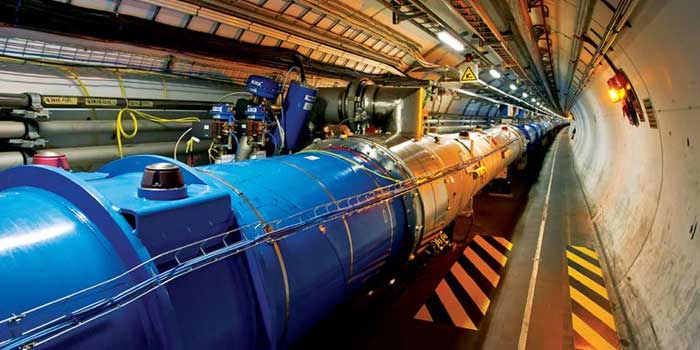The CERN’s Large Hadron Collider has started operating once again after being put through a 2-year break for being rebuilt. The £3.4 billion, 27km-long renovated particle accelerator located near Geneva in Switzerland, has doubled its energy-colliding capacity from 8TeV (teraelectron volts) to about 13TeV.
The Large Hadron Collider successfully completed its first trial run of a low-energy proton beam around its ring-like particle colliding apparatus. The scientists at the CERN will gradually increase the energy of the proton beam up to 6.5TeV which will render the highest man-made particle collision of 13TeV. However it will be realized only in June this year since the researchers need to repeatedly train the new superconducting magnets (known as ‘quenching’). They are wary of the helium leak accident that took place during the 2008 start-up and a minor electrical problem that delayed this year’s restart.

Tara Shears, one of the associated scientists at the CERN, told BBC that higher collision power levels (13TeV) mean the scientists will get a deeper look into the field of dark matter physics which may answer several unsolved properties of the universe. They may also be able to discover new particles theorized by the supersymmetry model, another theory besides the Standard Model of particle physics.
Shears noted that the first 3-year run allowed the confirmation of several theories of the Standard Model of particle physics and also led to the 2012 discovery of the Higgs boson particle. The Large Hadron Collider’s new run which will have more powerful collisions will take the scientists into speculated areas of physics and unravel mysteries of dark energy and dark matter accounting for about 95.1% of total mass-energy existing in the universe.
The CERN researchers are excited and hope the restart of the Large Hadron Collider will lead to more important discoveries in the field of particle physics and about the Big Bang.
